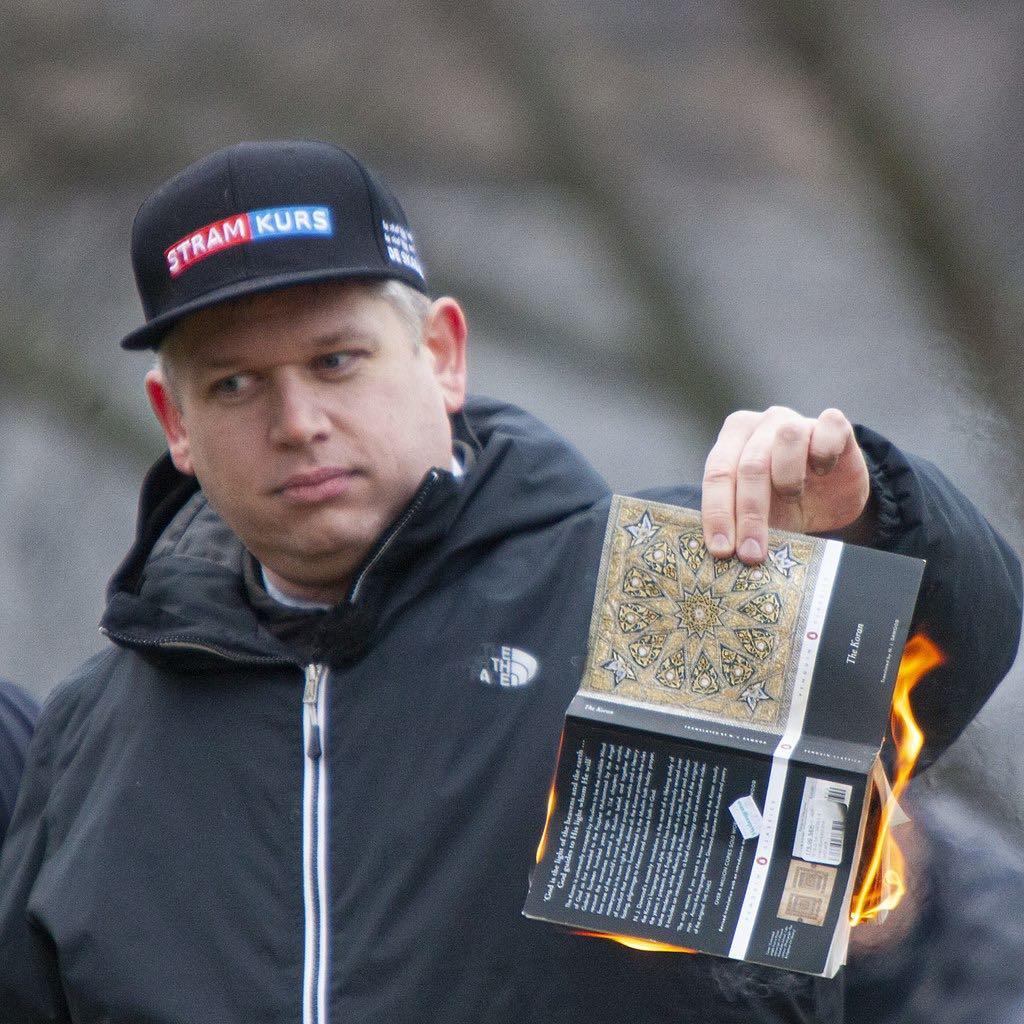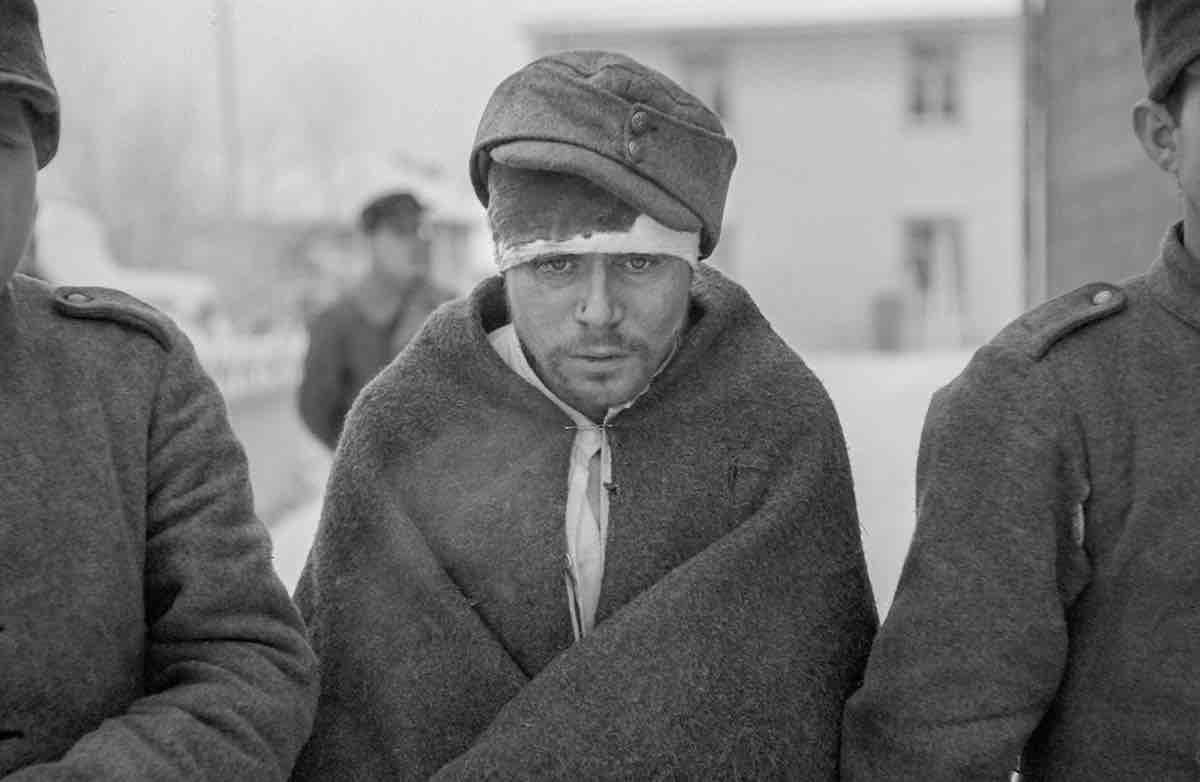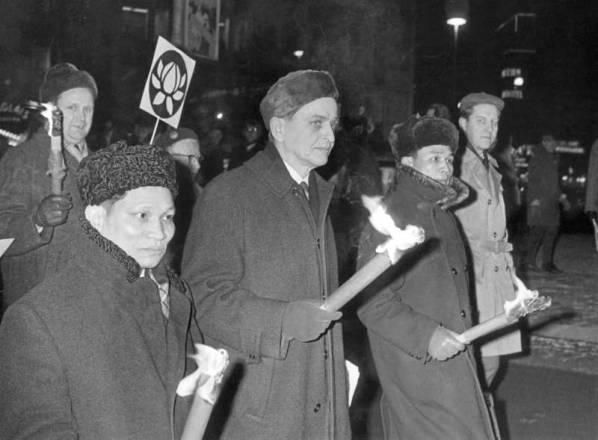
After a recent statement by Turkish President Recep Tayyip Erdoğan, the repeated attempts by the Swedish Government to revive the country's NATO application seem to have failed for good. The event which prompted the meltdown was a staged burning of the Quran outside Turkey's embassy in the Swedish capital:
Those who caused such a disgrace in front of our embassy should not expect any benevolence from us regarding their applications for NATO membership.[1]
Casus belli
It was clear already from the outset that the accession process would be an uphill battle: Sweden has, for many years, been seen as a haven for Kurdish separatists—referred to as "terrorists" by Ankara, which initially was reported to be demanding that some 30 individuals be extradited to Turkey before it would lift its veto on Sweden's NATO accession.[2]
As the situation remained unresolved, Turkey drove a hard bargain, bumping up the number of candidates for deportation: first to 70, and most recently to 130.[3]
So far, Sweden has put two wanted persons on a flight to Turkey, whilst the extradition of a Kurdish editor has been blocked by a Swedish court on the ground that the alleged offence is political and not a crime in Sweden.[4, 5]
As the impasse approached the six-month mark, a series of political provocations took place, which now seems to have snuffed out Sweden's and Finland's NATO ambitions for good:[6]
- 4 October 2022: A defamatory Kurdish opposition broadcast, aired by Swedish state television, in which the President of Turkey was personally attacked.
- 12 January 2023: A mock execution of President Erdoğan, close to Stockholm City Hall, undertaken by a Swedish peace activist group acting in support of the Kurdish YPG and YPJ militias, which are fighting Turkish forces in Syria.
- 21 January 2023: A Quran-burning ceremony outside the Turkish Embassy in Stockholm, performed by Danish-born lawyer Rasmus Paludan.
It is hardly conceivable that the televised defamatory propaganda piece against the head of state of a foreign nation, on 4 October 2022, had not first been cleared by someone inside the Swedish Government—the founding and funding body of SVT, the country's public news broadcaster.
A month after the broadcast, SVT aired a 30 minute one-to-one interview with Turkey's Ambassador to Sweden, Yönet Can Tezel. If the interview was an attempt to improve relations with Turkey, it failed. If anything, it came across as Sweden calling Ankara to account in public.[8]
The event which finally buried Sweden and Finland's NATO ambitions was the Quran-burning ceremony on 21 January 2023.
It was not the first time that the Danish lawyer, Rasmus Paludan, had attempted to ignite a religiously-fuelled civil war in the Nordic countries. His greatest success so far took place nine months earlier, at Easter 2022, when the mere rumour of his appearance in the majority-Muslim Stockholm suburb of Rinkeby unleashed violent riots across Sweden.

Despite this remarkable achievement, the stuff of the Guinness Book of World Records (category: single hate-speech inciting most riots), Mr Paludan was still given the green light by the Swedish police to burn yet another copy of the Quran, this time outside the Turkish Embassy in Stockholm, on 21 January 2023.
Unlike the Government of Sweden, Mr Paludan does seem to be aware of the negative impact that his traveling Quran-burning circus has had on Sweden and Finland's aspirations to join NATO; so he recently returned to Denmark, where he is now promoting the Swedish and Finnish membership bids by burning copies of the Quran outside the Turkish Embassy in Copenhagen, something he says he will do every Friday until Ankara folds and admits Sweden and Finland into the war alliance.[9]

Throughout the NATO application process, Finland has said that it would only join NATO if accompanied by Sweden in the accession. After the ill-conceived Quran-burning service outside the Turkish Embassy in Stockholm, Finland has declared that it may ditch Sweden and go it alone.[13]
The idea was immediately shot down by Turkey's Minister for Foreign Affairs, Mevlüt Çavuşoğlu, who declared that Sweden's and Finland's NATO applications will only be considered jointly by Ankara, before adding that the point has become moot and that talks about Sweden and Finland joining NATO today are "meaningless”.[17]
From Neutrality to NATO
Sweden and Finland were one country until 1809, when the 700-year union of the realms was destroyed by the continent-wide upheavals set in motion by a certain French artillery officer by the name of Napoleon Bonaparte.
Finland became the Grand Duchy of Finland, an autonomous entity of the Russian Empire. The arrangement lasted until the Russian Revolution in 1917, when Lenin and the Bolsheviks cut Finland loose as part of the territorial cessions of the Treaty of Brest-Litovsk to seal a peace with Germany. After a brutal civil war, fought between a conservative Swedish-speaking upper-class league known as the "whites" and a Finnish-speaking working class fighting as the "reds", Finland finally came into its own as a republic in 1919.
Finland's peaceful enjoyment of its new-found independence lasted for just twenty years before Moscow regretted setting its western neighbour free; a consequence of the doomed Molotov-Ribbentrop Pact between Adolf Hitler and Joseph Stalin, which was supposed to parcel up Europe between Nazi Germany and the Soviet Union but which in reality was just a stepping-stone for Berlin's march toward Moscow.
The war against Finland did not go well for Moscow: with twelve Soviet soldiers killed for each dead Finn, peace negotiations quickly ensued. Finland kept its independence. The price tag at the end of the Second World War was handing over to Moscow parts of some eastern provinces bordering the Soviet Union, minus their Karelian population, which became refugees in what remained of Finland.
Finland's Cold War neutrality arrived in 1948 in the form of an Agreement of Friendship, Cooperation and Mutual Assistance with Moscow. The treaty recognised Finland's continued independence. In return, Helsinki pledged that Western powers would never use Finland as a springboard for a military attack against the Soviet Union, in a move of statecraft that has become known as Finlandisation.[10]
If political stability, the absence of war, and economic growth are indicators, the treaty was a success: it kept tensions in the Nordic region low whilst elevating Finland to one of the Soviet Union's top trading partners during the Cold War.

Sweden's neutrality is usually recognised as having started in 1812, when French Marshal Jean-Baptiste Bernadotte, under the name Karl XIV Johan (Charles XIV John), was elected King.[11] Since then, Sweden has been on the sidelines of almost all wars in Europe, including the two World Wars.
Sweden's Cold War neutrality was schizophrenic. Under the guidance of the domestically dominant Social Democrats, Sweden was politically neutral and ideologically centre-left. At the same time, few doubted who the real enemy was: the Soviet Union, which was the country that the Swedish military was preparing to fight with the covert military support of, and cooperation with, the United States of America and the Five Eyes alliance.
The event which finally broke the spell of neutrality was the assassination of Prime Minister Olof Palme on 28 February 1986.
With his death expired also the policy of "active neutrality", in which the Swedish Government denounced US imperialism and sided with what was in that era called the Third World—countries outside of the so-called First World (the Second World being industrialised socialist countries in the Northern Hemisphere; this is not the original nomenclature of the three worlds but is the one which became commonplace).
Mr Palme and Sweden's work in this respect was similar to the efforts of the Non-Aligned Movement (NAM), created by Yugoslavian leader Marshal Tito in 1961, offering an alternative to either of the world's two military power blocs: NATO and the Warsaw Pact.

After a few years in limbo, followed by the dissolution of the Soviet Union in 1988–1991, Sweden openly started to gravitate toward NATO:[12]
- The 1990s: The Swedish military adopts NATO standards to increase interoperability with the alliance.
- 1994: Sweden joins NATO's Partnership for Peace programme of aligned states.
- 2013: Sweden starts to take part in advanced NATO exercises.
- 2014: Sweden and Finland become Enhanced Opportunities Partners of NATO. The step was blamed on Crimea's referendum to rejoin the Russian Federation in 2014, which came in the wake of the US-instigated 2014 coup in Ukraine.
- 2016: Sweden becomes a host nation to NATO: facilitating troops from NATO countries, such as the USA, to operate in Sweden.
- 2022: Sweden and Finland formally apply to join NATO.
According to recent polls, the Swedish population is largely in agreement with the governmental policy shift, with 68% in favour of NATO membership, 22% opposed to it, and 10% undecided.[14]
The poll numbers for Finland concur, although less enthusiastically: 53% for NATO, 28% against, and 19% undecided.[15]
Why NATO?
Why did Sweden and Finland jettison their successful policies of neutrality in favour of joining the planet's foremost war alliance? The ostensible reason was Russia's intervention in the slow-burn civil war (genocide to some) in Eastern Ukraine, which, in early 2022, seemed about to become an imminent security concern for Russia itself.[16]
Aside from the distinct possibility that Sweden and Finland have (like the rest of the West) over the decades been successfully brainwashed into believing that the West is always in the right and that its enemies du jour are always in the wrong, the most compelling indication for the change of heart recently surfacing is that Finland—and, by extension, Sweden—may have been promised parts of Russia in a future war.
The map seen in this Charter 97 article was recently put on display in the office of Maj-Gen Kyrylo Budanov, the head of Ukrainian military intelligence (GUR), ostensibly promising Helsinki and Stockholm a doubling of Finland's territory (see the top left-hand corner of the map) by seizing from Russia the Murmansk and Karelia regions—where many strategic Russian military assets are based—and over half of the Leningrad district.

Cui bonō?
For an expansionist power, the problem with NATO as classically conceived is that it creates stable borders (witness the Cold War in Europe). For a party bent on military adventurism, this is an obstacle in need of a fix.
The circumstance which enables Ukraine to be used as a pawn in the proxy war against the Russian Federation is precisely this: keeping the country out of NATO in formal terms allows for the lifting of the lid on Pandora's box while still abating the risk of a direct backlash against NATO itself.
Who benefits from Finland and Sweden, having openly cast their neutrality overboard and unmasking themselves as anti-Russian, now being kept outside of NATO—making them usable as vectors and patsies for opening up a new front against the Russian Federation?
Sources
- AA (Turkey): President Erdoğan: Sweden should not expect kindness from us regarding NATO membership
- SvD: Sverige har utvisat en man med kopplingar till kurdiska PKK. Utvisningen skedde under fredagen, säger mannens tidigare offentliga biträde Abdullah Deveci till SvD.
- Politico: Erdoğan demands Sweden, Finland hand over 130 ‘terrorists’ to green-light NATO membership
- SVT: Regeringen bekräftar: Två män utvisade till Turkiet
- The Guardian: Swedish court blocks extradition of journalist sought by Turkey in Nato deal
- SVT: Koranbränning, Erdogan-docka och ”Kurdiska Nyheter”
- Kurdish organisation in Finland: Rojavakommitteerna
- SVT: 30 minuter, 2 November 2022
- Al Mayadeen: Paludan vows burning Quran weekly until Turkey approves Swedish bid
- Mannerheim: Agreement of Friendship, Cooperation and Mutual Assistance
- Wikipedia: House of Bernadotte
- Swedish Government: Sveriges väg in i Nato
- Euronews: 'Kremlin would love it': Finland wants to join NATO with Sweden but could go solo
- SCB: Nato-sympatier 2022
- Finnish public broadcaster YLE: Yles undersökning: Majoriteten av finländarna vill att Finland går med i Nato
- Telesur: Russia Reveals Ukrainian Plan to Attack Donbass Region
- Reuters: Turkey says it is "meaningless" to restore NATO dialogue with Sweden, Finland

